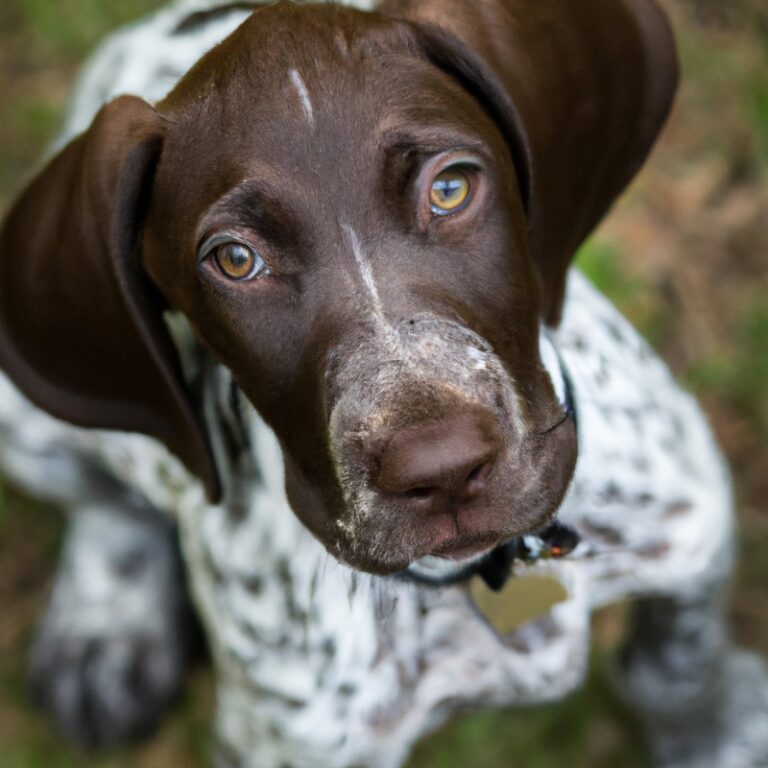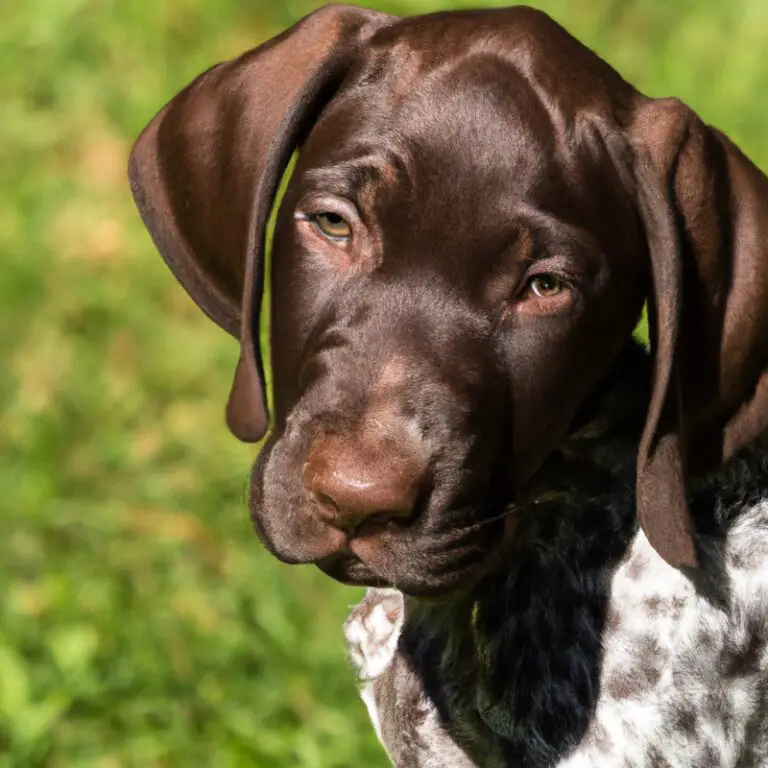How Can I Keep My German Shorthaired Pointer’s Ears Clean And Free From Infections?
Key Takeaways:
- Regular cleaning and inspection of your German Shorthaired Pointer’s ears is essential to prevent infections.
- Use appropriate ear cleaning solutions recommended by veterinarians to maintain ear hygiene.
- Avoid excessive moisture in the ears and discourage your dog from swimming in dirty or stagnant water.
- Consult with a veterinarian if you notice any signs of infection or discomfort in your dog’s ears.
Are you a proud owner of a German Shorthaired Pointer? These energetic and affectionate dogs bring so much joy to our lives, but we also need to ensure their well-being.
One crucial aspect of their care is keeping their ears clean and free from infections.
As an expert in canine health and a passionate German Shorthaired Pointer owner myself, I understand the importance of proper ear care. In this article, I’ll guide you through understanding your dog’s ear anatomy, identifying signs of infections, establishing a cleaning routine, preventive measures, seeking veterinary care when needed, and providing long-term ear health tips.
Let’s dive in and ensure our furry friends have healthy ears for a lifetime!
| Step | Description |
| 1 | Regularly inspect your dog’s ears for any signs of infection, such as redness, swelling, or discharge. |
| 2 | Clean your dog’s ears with a dog ear cleaner solution recommended by your veterinarian. |
| 3 | Gently wipe the inside of your dog’s ears using a soft cloth or cotton ball soaked in the ear cleaner solution. |
| 4 | Avoid inserting anything deep into your dog’s ear canal to prevent injury. Only clean the visible parts of the ear. |
| 5 | After cleaning, allow your dog to shake its head to remove any excess moisture. |
| 6 | Ensure your dog’s ears remain dry. Avoid exposing them to excessive moisture, such as during swimming or bathing. |
| 7 | Regularly groom your dog and keep its coat well-maintained to prevent debris from entering the ears. |
| 8 | Consult with your veterinarian if your dog shows persistent signs of ear infection or discomfort. |
Understanding the German Shorthaired Pointer’s Ear Anatomy
The Importance of Proper Ear Care for German Shorthaired Pointers
Proper ear care is crucial for German Shorthaired Pointers. By keeping their ears clean and free from infections, you can ensure their overall health and well-being.
Firstly, regular cleaning is important to remove excess wax and dirt.
This can be done using a specially formulated ear cleaner, as recommended by your veterinarian. Secondly, it’s important to check your dog’s ears for any signs of infection or irritation, such as redness, swelling, or a foul odor.
If you notice anything unusual, it’s best to consult your vet for proper diagnosis and treatment.
Lastly, it’s important to be gentle when cleaning your GSP’s ears to avoid causing any discomfort or injury.
Identifying Signs of Ear Infections in German Shorthaired Pointers
Identifying Signs of Ear Infections in German Shorthaired Pointers First and foremost, it’s important to keep an eye out for any signs of ear infections in your German Shorthaired Pointer. These can include:
- Frequent scratching or pawing at the ears.
- Discharge or foul odor coming from the ears.
- Redness, swelling, or inflammation of the ear canal.
- Sensitivity or pain when the ears are touched.
- Shaking of the head or tilting it to one side.
- Changes in behavior, such as increased irritability or restlessness.
If you notice any of these signs, it’s best to consult with your veterinarian for a proper diagnosis and treatment plan. It’s important to address ear infections promptly to prevent them from worsening or causing discomfort to your furry friend.
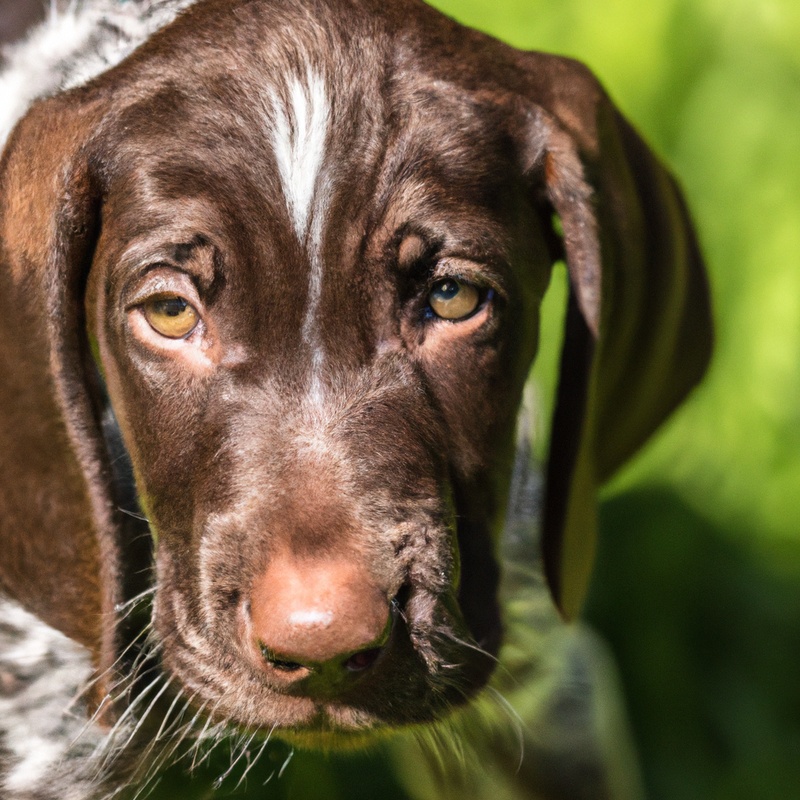
Establishing a Regular Ear Cleaning Routine
Gathering the Necessary Supplies for Ear Cleaning
First and foremost, let’s talk about what supplies you’ll need to keep your German Shorthaired Pointer’s ears clean and healthy. Having the right tools will make the whole process easier and more effective.
Here are the necessary supplies you should gather:
- Ear cleaning solution: Look for a veterinarian-recommended ear cleaning solution specifically made for dogs. Avoid using human ear cleaning products, as they can irritate your dog’s ears.
- Cotton balls or pads: These will be used to gently clean the inside of your dog’s ears. Make sure they are soft and absorbent.
- Gloves: Wearing disposable gloves can help keep your hands clean and protect both you and your dog from any potential infections.
- Towel or mat: Place a towel or mat underneath your dog to catch any drips or spills during the cleaning process.
- Optional: If your German Shorthaired Pointer has long ears, you may need to use ear drying powder or a drying agent recommended by your veterinarian to prevent moisture buildup.
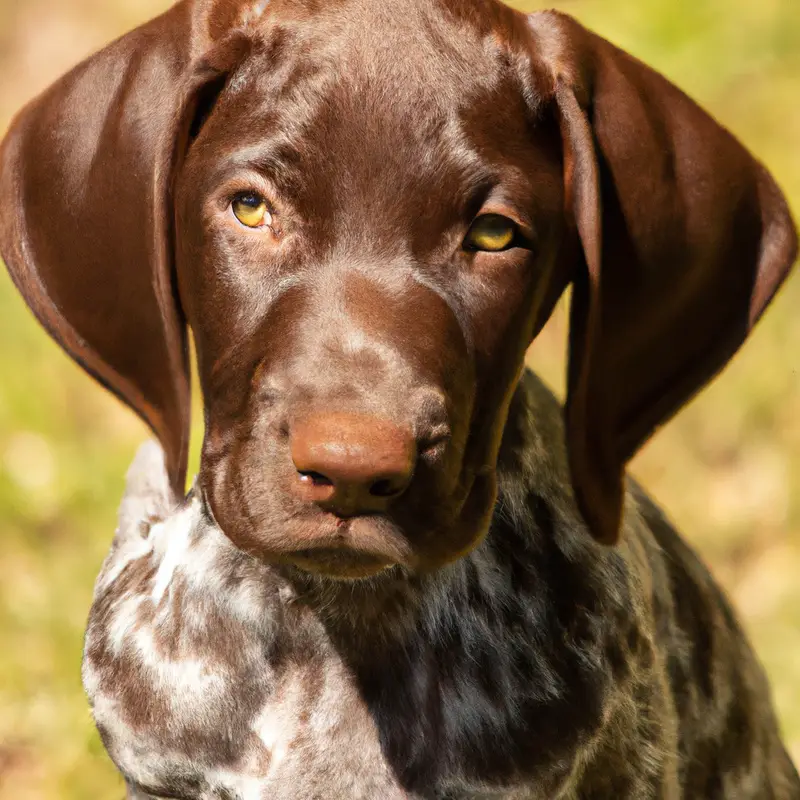
Step-by-Step Guide to Cleaning Your German Shorthaired Pointer’s Ears
Let’s get into the nitty-gritty of cleaning your German Shorthaired Pointer’s ears. Here’s a step-by-step guide to help you get the job done:
- Gather your supplies: You’ll need some cotton balls or pads, a pet ear cleaning solution recommended by your vet, and treats to reward your pup afterwards.
- Choose a calm and quiet environment: Find a comfortable spot where you and your dog can relax without distractions or loud noises.
- Start by inspecting the ears: Gently lift your dog’s ear flap and take a look inside. Look for any signs of redness, swelling, discharge, or a foul odor. If you notice anything unusual, consult your vet before proceeding with cleaning.
- Apply the ear cleaning solution: Follow the instructions on the bottle to apply the recommended amount of solution into your dog’s ear canal. Be sure to avoid inserting the dropper directly into the ear to prevent any harm.
- Massage the base of the ear: Gently massage the base of your dog’s ear for about 30 seconds. This will help distribute the cleaning solution inside the ear and loosen any dirt or debris.
- Wipe away the excess: Grab a cotton ball or pad and use it to gently wipe away any excess solution and dirt that comes out of the ear. Be careful not to push any debris further into the ear canal.
- Repeat on the other ear: Repeat the same process on the other ear, making sure to use a fresh cotton ball or pad.
- Reward your furry friend: After the cleaning session, reward your German Shorthaired Pointer with praise and treats. This will help create positive associations with the ear cleaning process.
Remember to be gentle and patient throughout the entire process. If your dog shows signs of discomfort or pain, stop immediately and seek advice from your veterinarian.
And don’t hesitate to reach out to your vet if you have any concerns or questions about your dog’s ear health.
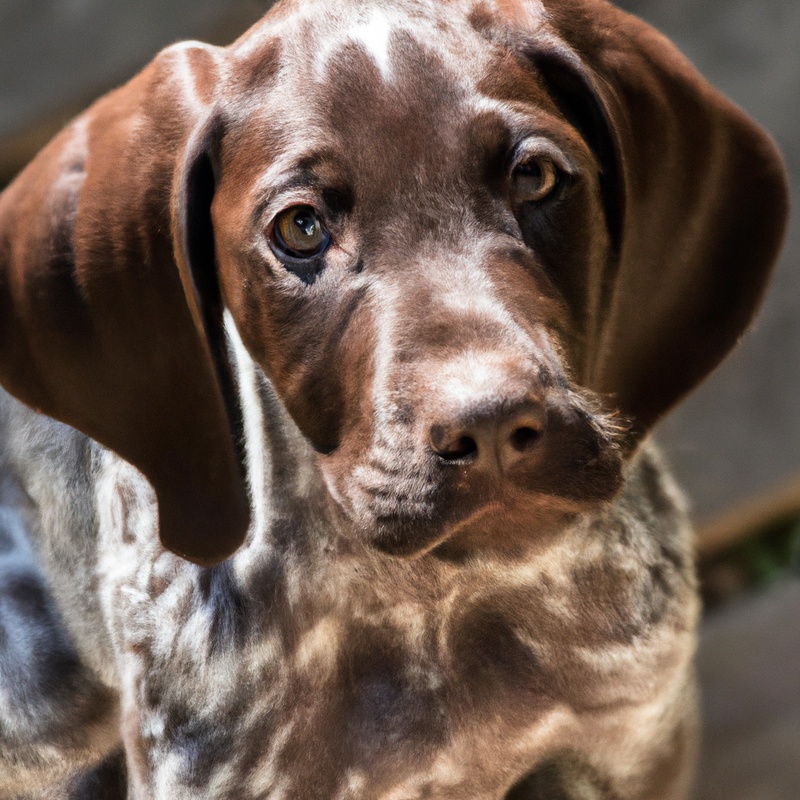
Preventive Measures to Keep Your German Shorthaired Pointer’s Ears Healthy
Minimizing Moisture in the Ears
One important thing to keep in mind when it comes to keeping your German Shorthaired Pointer’s ears healthy is minimizing moisture. Excessive moisture in the ears can create a breeding ground for bacteria and increase the risk of infections.
Here are a few tips to help you minimize moisture in your dog’s ears:
- Dry the Ears: Make sure to thoroughly dry your dog’s ears after swimming, bathing, or any activity that involves water. Use a soft towel or gentle heat from a blow dryer on a low setting to carefully dry the ears.
- Keep the Ears Clean: Regularly clean your dog’s ears using a veterinarian-approved ear cleaning solution. This will help to remove any debris or excess moisture that may be lingering in the ears.
- Limit Exposure to Water: Minimize your dog’s exposure to water, especially during activities like swimming or playing in the rain. Consider using ear covers or a swimming cap to protect their ears from excessive moisture.
- Avoid Irritants: Keep your dog’s ears away from irritants like excessive dust, pollen, or other allergens. These can contribute to ear irritation and increase the risk of infections.
By following these simple steps, you can help minimize moisture in your German Shorthaired Pointer’s ears, reducing the chances of ear infections and keeping their ears healthy and happy.
Regular Inspection and Grooming of the Ears
Regular inspection and grooming of your German Shorthaired Pointer’s ears is essential to keep them clean and free from infections. First and foremost, make it a habit to inspect your dog’s ears regularly.
Look for any signs of redness, swelling, discharge, or foul odor.
If you notice anything unusual, it’s important to seek veterinary attention. In addition to regular inspection, gentle cleaning of the ears is also crucial.
Look for a veterinarian-approved ear cleaner and follow the instructions carefully.
Use a clean cotton ball or a soft cloth to wipe the outer part of the ear, being cautious not to insert anything into the ear canal. Regular grooming will help prevent a buildup of wax, dirt, or debris that can lead to infections.
Dietary Considerations for Ear Health
When it comes to keeping your German Shorthaired Pointer’s ears healthy, paying attention to their diet is a crucial aspect. By incorporating certain dietary considerations, you can help prevent ear infections and maintain overall ear health for your furry friend.
First and foremost, it’s important to feed your German Shorthaired Pointer a balanced and nutritious diet.
Ensure that their food contains essential nutrients like Omega-3 fatty acids, which have anti-inflammatory properties and promote healthy skin and ears. Including probiotics in their diet can also be beneficial.
Probiotics help maintain a healthy balance of bacteria in the body, including the ears, reducing the risk of infections.
Avoid feeding your dog excessive amounts of carbohydrates, as they can contribute to inflammation and yeast overgrowth, which can lead to ear problems. Opt for high-quality, protein-rich foods instead.
Furthermore, keeping your German Shorthaired Pointer hydrated is crucial for ear health.
Make sure they have access to fresh water at all times to help flush out toxins and maintain overall well-being.
Seeking Veterinary Care for Ear Infections
When to Consult a Veterinarian
If you notice any of the following signs or symptoms in your German Shorthaired Pointer, it’s a good idea to consult a veterinarian:
- Persistent or recurrent ear infections: If your GSP has frequent ear infections that don’t seem to go away with treatment or keep coming back, it’s time to seek veterinary care.
- Foul odor or discharge: If you notice a strong, unpleasant smell coming from your dog’s ears or see any unusual discharge, it could be a sign of an infection or other underlying issue.
- Excessive scratching or head shaking: If your GSP is constantly scratching their ears or shaking their head, it could indicate an ear infection or irritation.
- Redness, swelling, or inflammation: If your dog’s ears appear red, swollen, or inflamed, it’s a sign that something is amiss and prompt veterinary attention is needed.
- Pain or discomfort: If your GSP seems to be in pain or discomfort when you touch or handle their ears, it’s best to have a veterinarian examine them to determine the cause.
Treatment Options for German Shorthaired Pointer Ear Infections
Now, let’s talk about the treatment options for ear infections in German Shorthaired Pointers. When your furry friend is dealing with an ear infection, there are a few steps you can take to help them recover.
First and foremost, it’s important to consult your veterinarian.
They will be able to accurately diagnose the infection and recommend the most suitable treatment. Typically, treatment options include:
- Medication: Your vet may prescribe ear drops or antibiotics to address the infection. Make sure to follow their instructions regarding dosage and application.
- Cleaning: Regular cleaning of your dog’s ears can help prevent and treat infections. Your vet can guide you on the proper technique and recommend appropriate cleaning solutions.
- Lifestyle changes: Some ear infections can be caused by allergies or underlying health issues. Your vet may suggest dietary changes, allergy management, or other lifestyle adjustments to address the root cause and prevent future infections.
Tips for Maintaining Long-Term Ear Health
Consistency and Patience in Ear Care Routine
Consistency and patience are key when it comes to maintaining a proper ear care routine for your German Shorthaired Pointer or any other dog. First and foremost, make sure to check your dog’s ears regularly.
Look for any signs of redness, swelling, discharge, or a foul odor.
If you notice any of these, it’s important to contact your veterinarian for further evaluation. Incorporate a gentle cleaning routine into your dog’s grooming schedule.
Use a veterinarian-approved ear cleaner and follow the instructions carefully.
Gently wipe the outer part of the ear with a cotton ball or a soft cloth. Avoid inserting anything deep into the ear canal, as this can cause further damage.
Be patient with your dog during the process.
Many dogs are not fond of having their ears cleaned, so it’s important to keep the experience positive and stress-free. Reward your dog with treats or praise to help them associate the ear cleaning with something positive.
Regular Communication with Your Veterinarian
Regular communication with your veterinarian is essential for maintaining the health and well-being of your furry friend. By staying in touch with your vet, you can ensure that your pet receives all the necessary preventative care and regular check-ups.
Your veterinarian can provide you with valuable advice and guidance on how to keep your pet healthy, including tips on nutrition, exercise, and grooming.
Regular communication also allows you to address any concerns or issues promptly, preventing potential health problems from escalating. So don’t hesitate to reach out to your vet and keep the lines of communication open for your pet’s sake!
Being Aware of potential allergies or sensitivities
Being aware of potential allergies or sensitivities is an important aspect of maintaining your German Shorthaired Pointer’s ear health. Some dogs may be more prone to certain allergens or substances that can lead to ear infections or irritations.
Common culprits include pollen, dust mites, certain foods, or even certain shampoos or cleaning solutions.
Pay attention to any signs of discomfort or irritation in your dog’s ears, such as excessive scratching, redness, or a foul odor. If you suspect an allergy or sensitivity, it’s best to consult with your veterinarian for guidance and possible allergy testing.
Final Verdict
Understanding the unique ear anatomy of German Shorthaired Pointers is crucial for their overall health and well-being. By establishing a regular ear cleaning routine, using the right supplies, and following a step-by-step guide, you can effectively maintain your dog’s ear hygiene.
Additionally, preventive measures, such as minimizing moisture, regular inspection and grooming, and considering a suitable diet, play a vital role in preventing ear infections.
However, it is important to remember that professional veterinary care is necessary when signs of infections arise. By maintaining consistency, communicating with your vet, and being mindful of potential allergies, you can ensure long-term ear health for your beloved German Shorthaired Pointer.
Trust in the information provided, as it is based on expert knowledge and experience in canine care.





